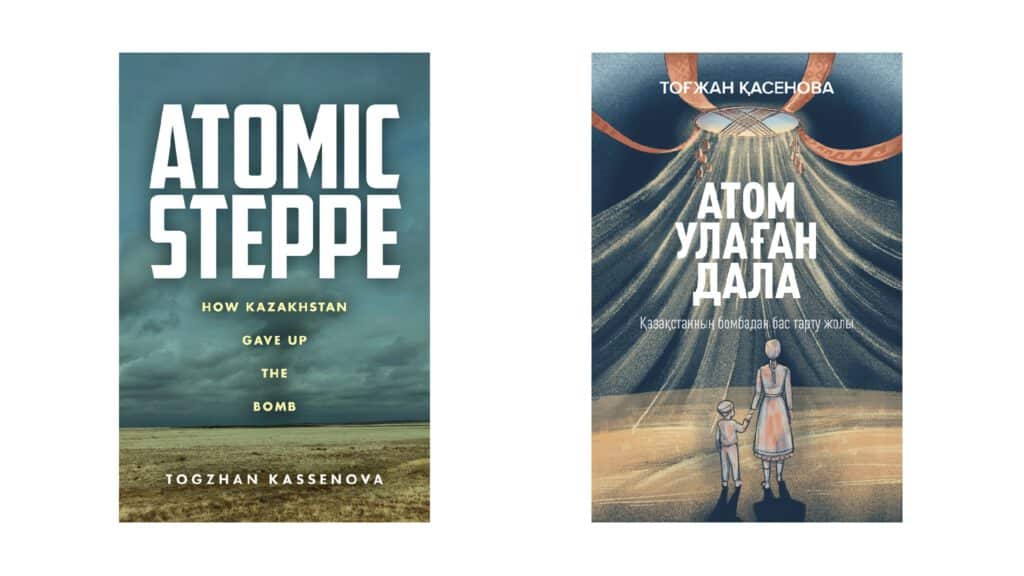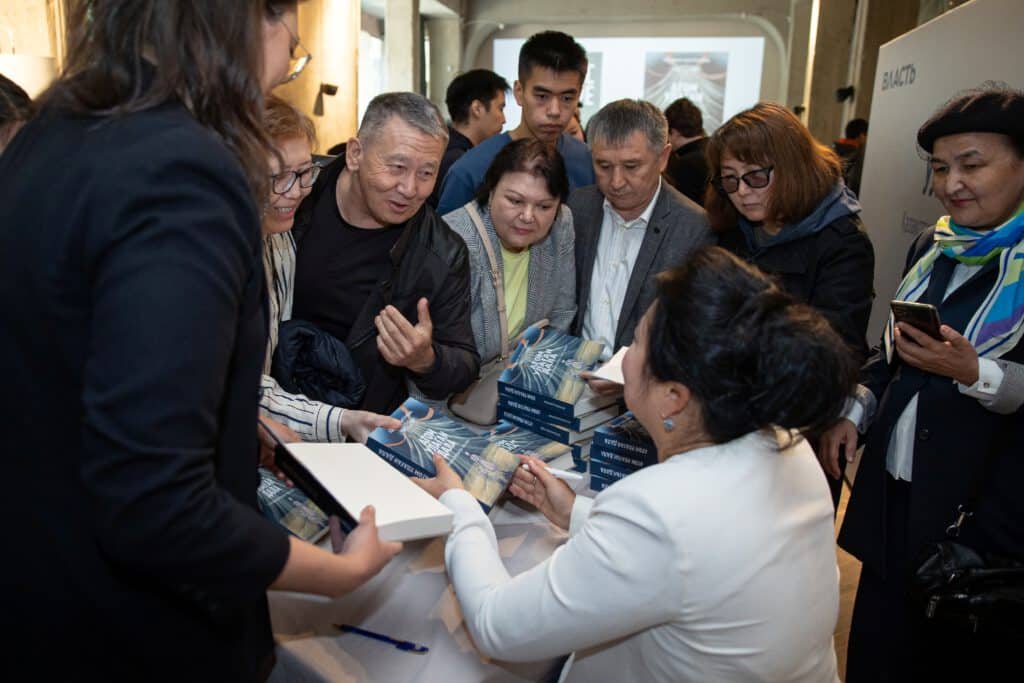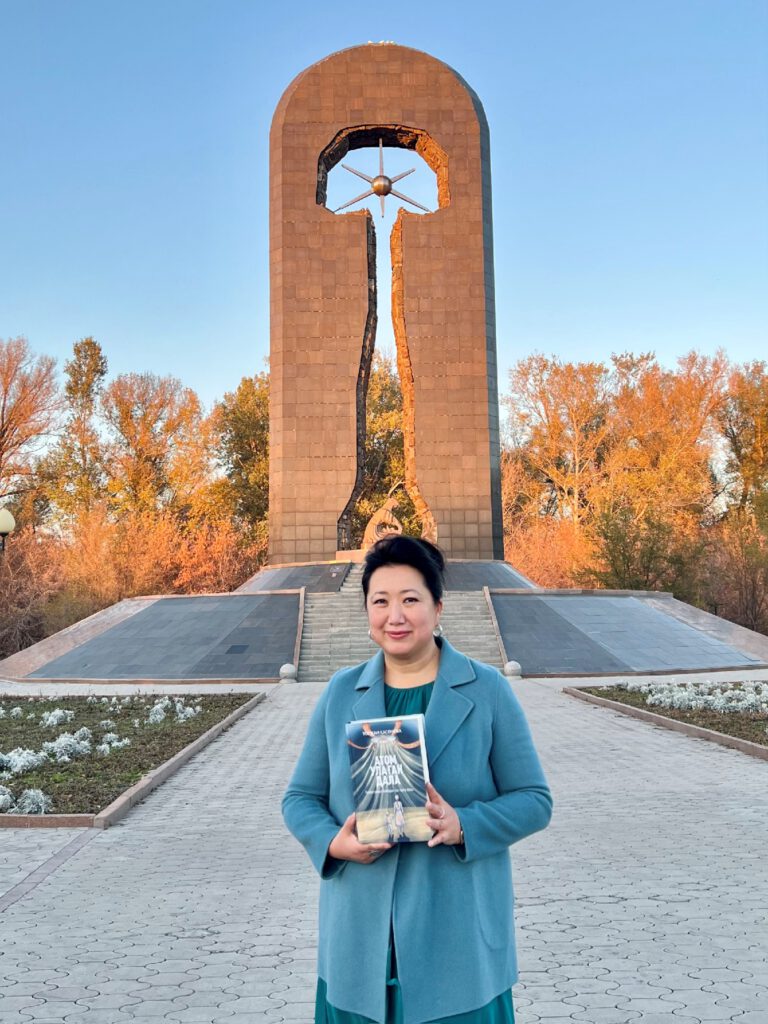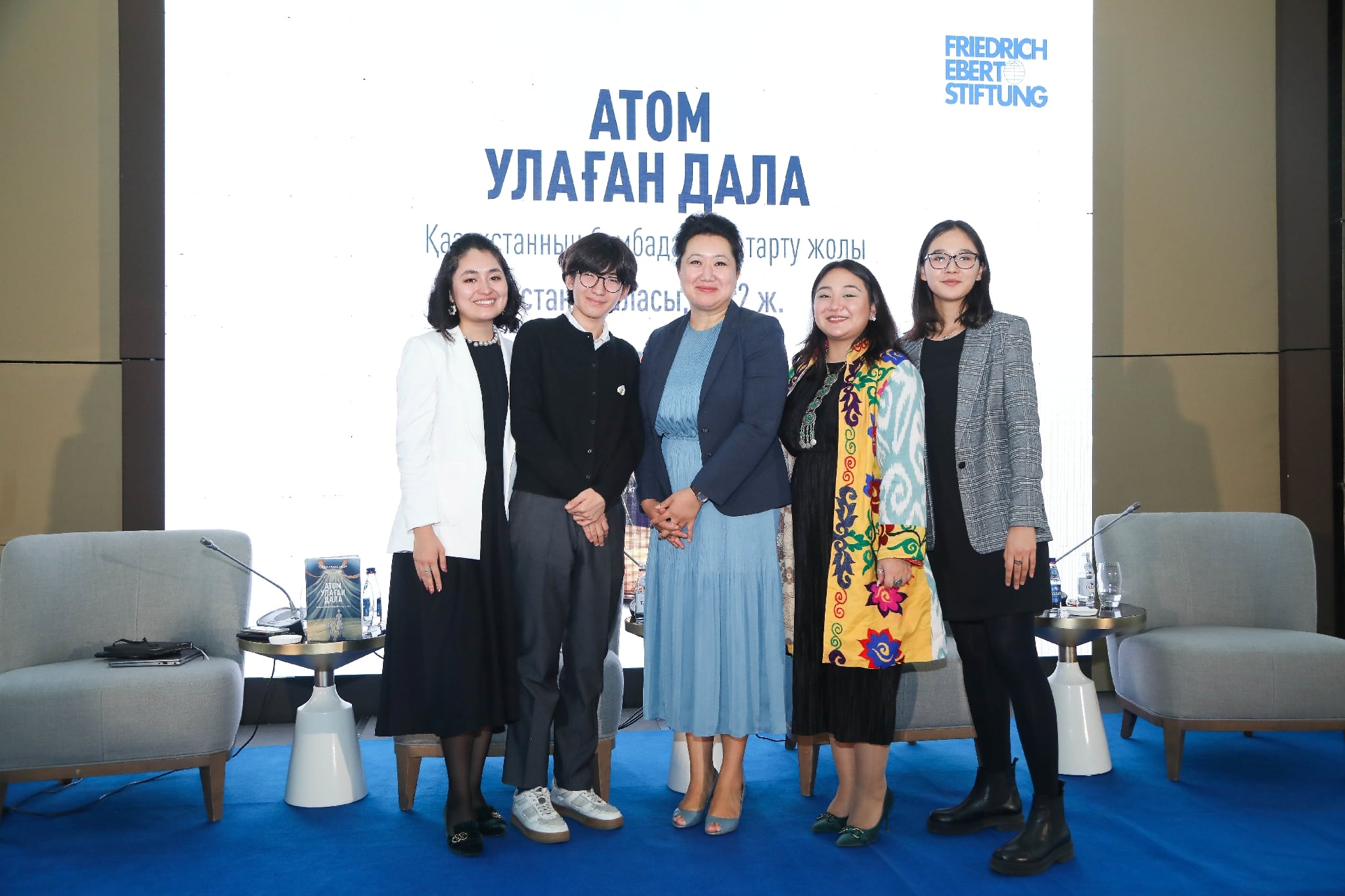Kazakhstan, Nuclear Weapons, Atomic Steppe – Talking with Dr. Togzhan Kassenova
We talked to Kazakh author Dr. Togzhan Kassenova about her book “Atomic Steppe” – the story about Kazakhstan’s Polygon and how the country got rid of the Soviet atomic bombs.
The native Kazakh author Dr. Togzhan Kassenova, an expert on nuclear politics and financial crime prevention, worked hard over a decade on a book to tell the untold true story about the horrible Soviet Atomic bomb tests in the Kazakh steppe, its terrible impact on local people, animals and nature – and Kazakhstan’s long and hard way to remove its nuclear legacy.
This book Atomic Steppe – How Kazakhstan Gave Up the Bomb was finally published in English in February 2022 and in Kazakh in September 2022.
Info Shymkent had the opportunity to have an interview with Dr. Togzhan Kassenova to find out more about her, her book Atomic Steppe and how well it fits into the current political situation in the world.
Info Shymkent: Hello Togzhan, how are you? Where are you at the moment?
Togzhan: I am doing well, in Paris at the moment. I am here for work but also manage to sneak in wonderful meals and art. If any of your readers are in Paris before March 2023, please make sure you check out The Splendors of Uzbekistan Oases exhibit at The Louvre.
Info Shymkent: Yes, this recommendation is wonderful! We were also in Paris at the end of November, but we were at the Louvre too early. The exhibition opened two days later. Now to you, Togzhan: Can you briefly introduce yourself to our readers, please?
Togzhan: I am a native of Almaty (the best city in the world!). I lived in Taiwan and Britain and now live in Washington, DC. I am an expert on nuclear politics and financial crime prevention.
Info Shymkent: How did you come up with the idea of writing about the history and legacy of the Polygon (also well known as the Semipalatinsk nuclear test site) in Kazakhstan and the people who lived around it?
Togzhan: It was back in the early 2000s when as a young nuclear scholar, I started thinking about telling my country’s story. There are only a handful of countries that ever had anything to do with nuclear weapons, and Kazakhstan is one of them. Initially, I planned to focus on the politics of the post-Soviet period – Kazakhstan’s decision to give up nuclear weapons. When I started traveling to the Semipalatinsk (now – Semey) region, meeting survivors of Soviet nuclear tests, I realized that it was equally, if not more important, to tell the story of the Polygon and the Soviet nuclear tests. Telling the story of the people who are paying the price of the Soviet nuclear weapons program became my mission.

(Image: Togzhan Kassenova (photo)/Rob Ehle (design) for English Version, Diana Akual (illustration)/Zhar Zardykhan (design) for Kazakh Version)
Info Shymkent: Your book has been published in English and Kazakh. What was the feedback from Kazakh readers on the book? And what about people who read about Kazakhstan for the first time?
Togzhan: I would like to express my gratitude to Friedrich-Ebert Foundation (FES) in Kazakhstan for supporting the translation of Atomic Steppe into Kazakh, its publication, and launch events in Kazakhstan. I am also thankful to independent media outlet Vlast KZ for co-hosting the launch in Almaty. I underestimated the reaction to my book in Kazakhstan. I knew that people would want to learn more about the country’s nuclear past, but I didn’t realize how strongly people would react. The timing of the book added to the intensity of the reaction. I was moved to see how the Kazakh audience saw the nuclear story as part of a broader discourse on nation-building and decolonization. The search for national identity and questioning of the Soviet past started some time ago, but with Russia’s invasion, this process intensified significantly.
As for people who don’t know Kazakhstan well, here are some common reactions I received: complete shock that anyone (in this case, the Soviet government) would conduct nuclear experiments where people lived; admiration for Kazakhstan’s anti-nuclear movement; surprise at how skillfully Kazakh policy-makers negotiated with the foreign powers at the early days of the country’s independence; praise for Kazakhstan’s anti-nuclear choice. Several readers were moved enough to send gifts and words of support for the families whose stories I profile in the book.

(Image: Almaz Toleke)
Info Shymkent: What a great perception and feedback from the Kazakh people regarding your book and the subject matter contained in it! That is wonderful!
The beginning of the war in Ukraine in February changed a lot. And Ukraine and Kazakhstan had similar history after the end of the Soviet Union. You often refer to the similar paths of these two countries in your book. Both gave up their nuclear bombs, but now Ukraine is under attack from Russia. What is your opinion: did Kazakhstan make the right decision to abandon the atomic bomb in the 1990s?
Togzhan: My answer is Yes. The early 1990s was a decisive moment in Kazakhstan’s history – it was a moment of make it or break it in terms of its sovereignty and independence. To survive as a new sovereign state, Kazakhstan had to enter the international community on good terms, a responsible player that was not making the world a more dangerous place, not as a pariah state. It needed access to foreign direct investment, technology, and international markets. For example, how would Kazakhstan start developing its rich natural resources and building up its economy, which was in shambles, if no foreign companies were interested in coming and investing in Kazakhstan? Imagine a North Korean-style Kazakhstan; it would be a completely different country.
Both Kazakhstan and Ukraine made the right choice; both contributed to international security by saying “No” to nuclear weapons. It is a different question that Russia violated international norms and its own promises and commitments when it annexed Crimea in 2014 and in 2022 when it launched an unprovoked illegal invasion of Ukraine. Our attention should be on Russia and its actions, not on questioning whether Kazakhstan and Ukraine made a mistake by choosing a non-nuclear path.
Info Shymkent: Another major problem the world is currently facing is global warming. The countries of our planet must reduce carbon dioxide in order to stop global warming. Kazakhstan intends to reduce its carbon footprint with renewable energies, but also with the construction of a new nuclear power plant. What do you think of this plan?
Togzhan: Kazakhstan’s government is responsible for answering several important questions before introducing nuclear power. Is it necessary to add nuclear to the energy mix, or can other measures be taken to ensure a stable energy base? Can the government guarantee the highest nuclear safety and security standards? Can such an important project be protected from corruption? We know the fate of the light rail project in Astana, abandoned halfway due to corruption. Skimping on the quality of construction material or abandoning an incomplete nuclear power plant because of corruption is way more consequential than abandoning a light-rail project.
Info Shymkent: What do you miss most about Kazakhstan living in the US?
Togzhan: I miss a communal way of life – how friends and family see each other often, spend time together, and prioritize friendships and family ties over work. I miss the mountains, and I miss the Kazakh Steppe. I also miss Almaty’s coffee shops, Korean food, and buying fruits and vegetables from street vendors.
Info Shymkent: We also live abroad and we miss these things as well. But you also traveled a lot in Kazakhstan for research purposes and later for the presentation of the Kazakh version of your book. What was your best and what was your worst moment that you experienced in the country?
Togzhan: My best moments involve meeting Kazakhstan’s youth. I met talented, free, multilingual, and well-educated young people keen to understand, rethink and process the past. They are free spirits, not carrying the burden of the Soviet period, fully open to the world.
I am grateful for the opportunity to visit the area near the former nuclear testing site in Semey to interact with families there – I always feel a renewed sense of purpose in my work after such trips. But those trips also bring up sadness and anger. I find it unacceptable that communities that continue to suffer from the legacy of the Soviet nuclear tests do not have adequate support from the government and society.

(Image: Aigerim Seitenova)
Info Shymkent: What do you read after a long and hard day’s work or during a long flight?
Togzhan: I love reading books written by female war correspondents – the stories of fearless women always inspire me. I am also very keen on books about immigrant experiences as it is something I can relate to. On this trip, I am reading How to Stand Up to a Dictator by courageous Maria Ressa, the 2021 Nobel Peace Prize winner.
Info Shymkent: What do you wish Kazakhstan for the future?
Togzhan: When I think of Kazakhstan’s best features, I think of the openness of its people to different cultures, influences, and innovation. I hope that on that Kazakhstan never changes. I hope Kazakh talents – be it in music, film, science, or IT – continue contributing to Kazakhstan’s and the world’s progress.
It’s a challenging moment in history, not only for Kazakhstan but for the broader neighborhood. I hope that Kazakhstan comes out of this difficult period a stronger nation.
Info Shymkent: You worked on the book Atomic Steppe for over ten years. What are your plans for the future? Do you already have an idea for a follow-up project?
Togzhan: I hope that the next steps for Atomic Steppe are a translation into different languages and adaption to film or TV screen. I also hope that young scholars will follow my path and continue working on this topic, as there are many hidden truths that still need to be uncovered.
Info Shymkent: We sincerely hope that your wishes will come true and Atomic Steppe and the stories of the people who live and lived around the Polygon become well known to the world. Thank you very much, Togzhan, for this nice interview with you and to make it happen. After reading your book it was very interesting for us to talk with you and we hope it arouses our readers’ interest in this topic as well. Have a good start into the fresh new year 2023!
More information about Dr. Togzhan Kassenova and her book “Atomic Steppe”:
- Buy “Atomic Steppe” at Stanford University Press
- Personal website of Dr. Togzhan Kassenova
- Follow Dr. Togzhan Kassenova on Twitter
Cover image: At the launch of the Kazakh version of Atomic Steppe: How Kazakhstan Gave up the Bomb organized by FES-Kazakhstan in Astana, on September 29, 2022. Dr. Togzhan Kassenova with the speakers of “Kazakhstan’s New Generation and Nuclear Politics” panel. From left to right: Zhibek Toktash, Alisher Khasengaliyev, Dr. Togzhan Kassenova, Aigerim Seitenova, Adiya Akhmer. (Image: FES)



